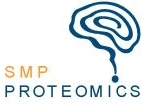 | |
|
Started three years ago the German scientific community got a great boost in its technological advancements in proteome technology with an initial funding of the Human Brain Proteome Project within the first funding period of the National Genome Research Network (NGFN-1) by the German Federal Ministry of Education and Research (BMBF).
As a logical consequence of the outstanding results of this consortium the Human Brain Proteome Project 2 (HBPP2) will be funded again within NGFN-2 in a new formation with 9 academic partners and the bioinformatic specialist MicroDiscovery GmbH, Berlin. The aim of HBPP is to develop technology and gain knowledge that once applied enables the development of new strategies for the diagnosis and treatment of neurodegenerative diseases. To achieve this goal, HBPP2 has gathered a critical mass of interdisciplinary German research groups with extensive experience, an unprecedented research infrastructure, a global science network within HUPO and a solid record in clinical and pre-clinical work encompassing human genetics, cell biology, animal models, molecular biology, biochemistry, encompassing the integration of large-scale functional genomic and proteomic approaches.
The three main goals of the HBPP2 are the following:
1) The advancement of already established technologies:
Based on advancements in technology achieved within NGFN1, HBPP2 will further advance its technology platform for the planned scientific program. Proteomics technologies (Large 2D-PAGE, multidimensional chromatographie, mass spectrometry), Toponomics and functional assays such as cellular overexpression, pharmacological inhibition, RNAi and optical methods such as GFP-labeling, immunofluorescence and FRET/BRET will be employed to analyze the functional implications of gene mutations selected in collaborations with the clinical partners.
2) Investigating neurodegenerative diseases:
HBPP2 will emphasize on applications of genomic and proteomic technology. A focus will be systematic analysis of proteins in human/mouse brain and nervous system related proteins in bodily fluids under normal and pathological conditions. Morbus Alzheimer and Morbus Parkinson will be studied on the basis of human material and selected mouse models. The technology portfolio provided by the HBPP2 offers a conceptually novel opportunity to understand disease mechanisms in that it attempts to progress from current reductionist approaches to an integrated understanding of biological systems.
3) Networking within NGFN-2:
Tight collaborations with clinical groups in the Diseases-oriented Genome Networks (KGs) will allow performing clinically relevant proteomic studies or protein analyses that offer the most advanced proteomics technologies to the NGFN-2 KGs. In addition, HBPP2 is open for cooperation with other SMPs, namely Bioinformatics, RNAi, and Mammalian Models. Data obtained in the project will be collected in a new type of database. Standards, SOPs and software for data management & integration will be developed. Together, these tools will form the basis for an efficient analysis and the generation of knowledge on the fundamental biological processes in normal and disease-affected brain.


